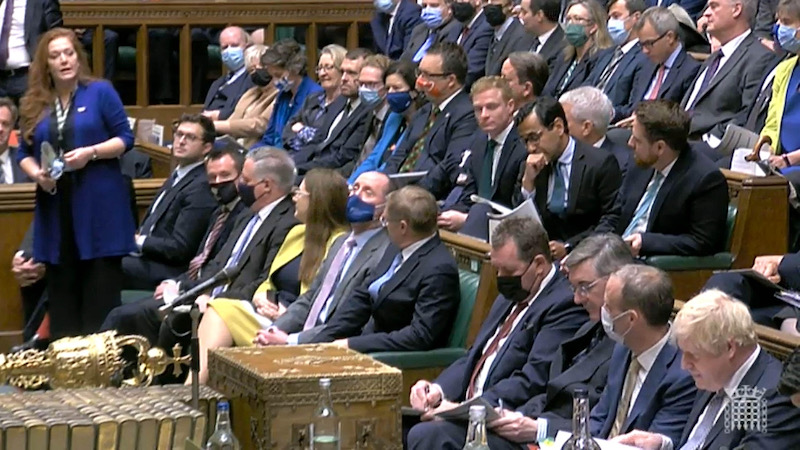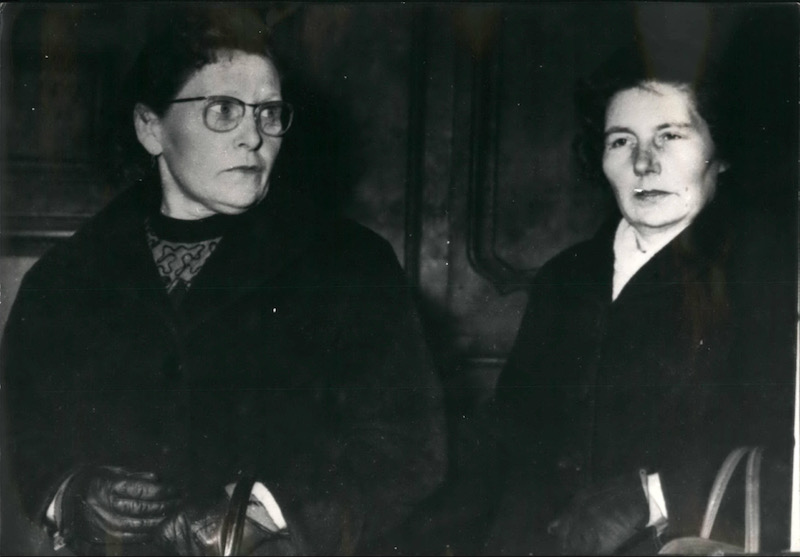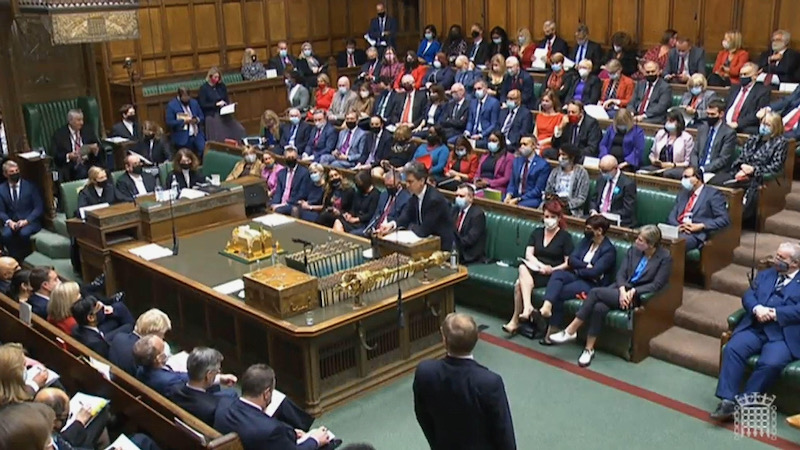A disturbing pair of photographs appeared on one popular news website not long ago. One was of the Conservative benches in the House of Commons, packed for some important event, showing that every single Tory MP was bare-faced. The second was of the similarly crowded back-benches on the Labour side, with every single person wearing a mask. The message was that mask-wearing had become politicised, just as in the United States. Republicans do not wear masks, Democrats do – or most of them, most of the time. And in the US, mask-wearing has become a subset of the culture wars. Is the same thing happening in Britain?
The House of Commons budget debate suggested not. Someone in the Conservative whips office, it seems, had thrown an ideological switch, and masks on Tory faces were back in favour once more. Even the Prime Minister wore one as he sat beside his Chancellor of the Exchequer, who was delivering his annual statement on the economy. And this was not the only change. Another ideological switch had been thrown. Not by any stretch of the imagination was this a Thatcherite budget. So much for “There Is No Alternative”, abbreviated to TINA, which was Margaret Thatcher’s political motto. This was indeed a Social Democrat alternative.
Not a very good one, according to Rachel Reeves when she delivered Labour’s response. The inequalities that divided the nation were left intact, she said; many of the poor would soon be poorer. Rishi Sunak, the Chancellor, conceded in his opening remarks that the onset of the Covid epidemic had required the Government to set aside “orthodoxies and ideologies” in order to cope with it. That was code for the State-shrinking free market theory, in other words Thatcherism, that had reasserted its cold hard grip on the country since the Conservatives defeated Labour in the 2010 election.
The essence of Thatcherism, and its American cousin called Reagonomics, was that the State was in principle the enemy of freedom, as in Friedrich Hayek’s Road to Serfdom – her Bible. To promote freedom, he said, you have to shrink the State, withdrawing it from as much of the everyday life of ordinary people as possible. A smaller State meant lower taxes, so people had more of their own money to spend and could chose how to spend it. Hence instead of a National Health Service, say, you had a free market in health care. And under Tory Government’s prior to Boris Johnson’s, Britain was heading slowly in the same direction. Public services were starved of funding, in theory at least in order to encourage free enterprise alternatives.
The Johnson government, on the other hand, has embarked on the expansion of public services on a scale more typical of Labour Governments, with a total tax burden on the economy, to pay for it, higher than any since the late 1940s. As the Chancellor finished his Budget speech he declared his commitment to low taxes in the long run, when present emergencies had passed. But it was a hollow promise.
The cat was out of the bag, the milk was spilt: Thatcherism was dead. For it was never a doctrine for good times only, a luxury when liberal democracies could afford it. It was Truth, a revelation, a dogma, whose adherents submitted to it fervently through thick and thin. Negative commentators called it a religion. Academic economists who did not subscribe to it found their career paths blocked. Indeed after a while the very word “economics” only referred to free market theory, and those who did not agree with this definition were deemed “economically illiterate”.
 Boris Johnson in the Commons yesterday, where many Conservative MPs were wearing masks. PA/Alamy
Boris Johnson in the Commons yesterday, where many Conservative MPs were wearing masks. PA/Alamy
How did this happen? It is the story of a daring ideological insurrection, a coup in fact, which took over the commanding heights of Conservative Party policy thinking and making in the years immediately before and immediately after Margaret Thatcher won the 1979 election. One reason this political plot succeeded was precisely the dearth of ideology in British politics up to that point. The Tory Governments led by Churchill, Eden, Macmillan, Douglas-Home and Heath were all variations on the theme of a mixed economy, a large State, high taxes, State intervention in business and industry, and public services provided and paid for by the Government (with taxpayers’ money). This more or less consensus was dubbed “Butskellism”, a combination of the names of RA Butler, a Tory guru and senior minister, and Hugh Gaitskell, a notable Labour leader who never won an election.
But after 1979 Labour pulled away from it to go left, with Michael Foot as its leader in search of true Socialism. And the Tories pulled away to go to the right, to look for the free market nirvana promoted by several influential think tanks like the Institute for Economic Affairs, and influential politicians like Sir Keith Joseph. Indeed the only major public institution still attached to Butskellism was the Church of England, which seemed somehow not to notice that it had been left high and dry (or “wet”, to use Thatcher’s term for anyone who did not agree with her) on both sides.
Free market theory allows for exceptions, called market failures, and permits the State to intervene to correct them. The fundamental flaw with the Thatcherite project was that so many market failures were occurring that they began to dominate the scene. The Government was drawn more and more into managing the economy whether it wanted to or not. The latest case of market failure is on the railways, which are being gradually renationalised. Another non-Thatcherite intervention to overcome a market failure is the raising of the minimum wage to £9.60 an hour, announced in the Budget. The free labour market, in other words, failed to deliver an adequate standard of living for most of the population.
An even worse case would be the social care system – thousands of residential care homes all over the country, independent of the State in principle but dependent on State funding in practice, who are struggling (and in some cases failing) to provide a minimum of care for their huge population of the elderly and vulnerable. The Government has looked for a free market solution and found none. The crisis goes on. And Johnson’s pet scheme, “levelling up”, is by definition addressed at the failure of the market to resist the growing inequality in Britain, most notably between north and south.
Naturally, residual pools of Thatcherism still exist, for instance in the comment pages of the Daily Telegraph. Politicians on the right still talk as if Thatcherism was an orthodoxy with a future. But as an incursion it has been overwhelmed and defeated by forces it cannot control. In its heyday it was touted as a “theory of everything”, but the mask has slipped. If it cannot help a Tory Chancellor face one of the most critical economic challenges since the war, then in the end, surely, it is a theory of nothing.



 Loading ...
Loading ...
What do you think?
You can post as a subscriber user ...
User comments (0)